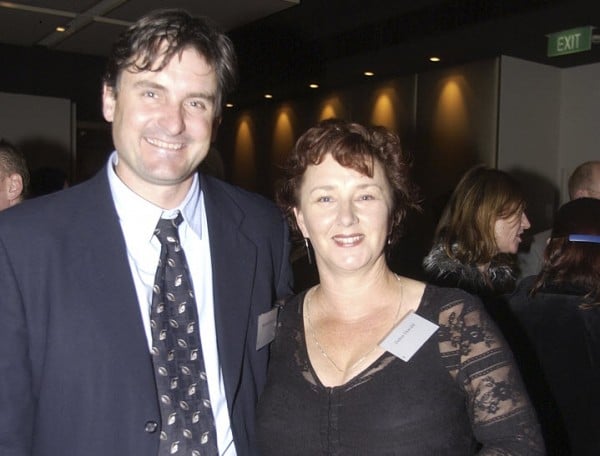
Richard Glover is one of Australia’s most well known journalists and broadcasters. In his new memoir, Flesh Wounds, Glover writes about growing up with parents who weren’t interested in him, and how his partner Debra Oswald changed the way he thought of family. An extract from the book is published below.
Even though I wasn’t living with my father, I kept being pulled back into the chaos of his life. He was depressed and still drinking heavily. His second wife, Ivy, was tearful and exasperated. My father had seemed such a good catch – handsome, gregarious, intelligent, a successful businessman.
Then, once they were married, she realised the various design faults: the obsession with my mother, the anger towards ‘that bastard Phillipps’, the tendency towards self-pity, the drinking. Quite understandably, Ivy would call me up, demanding my attendance at the house. Sometimes I’d make excuses for why I couldn’t get there, but often I’d drive over in my car.
My father would be in the hallway, ranting. Or comatose in the lounge, sleeping it off. ‘Look at him,’ Ivy would say. ‘What am I meant to do?’ I don’t think she expected me to intervene. She just wanted an act of witnessing, for someone else to understand what she was going through.
Meanwhile, the painting of Debra’s theatre set had resulted in us becoming friends. One night, I thought I might see if she was interested in something more intense. I invited her back to my converted garage for dinner. The people from the main house were out for the night, so I made Debra a meal using their kitchen. I concocted Fried Eggplant, using a recipe from The Vegetarian Epicure, one of the world’s worst cookbooks. ‘Oh, I love eggplant,’ Debra lied, peering at the slices, sitting covered in salt on a filthy teacloth. ‘Terrific,’ I answered, wishing I knew how to cook. I had an electric fry-pan at the ready, into which I was pouring an unfeasibly large amount of cooking oil. ‘You don’t think you’re overdoing the oil?’ Debra said, over the glug-glug-glug sound of me adding more. ‘Oh, I don’t think you can overdo it,’ I replied with what I imagined was a chef-like swagger.
